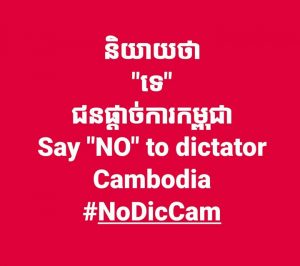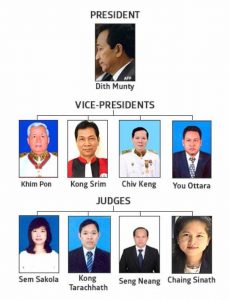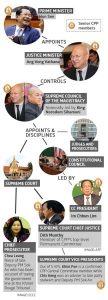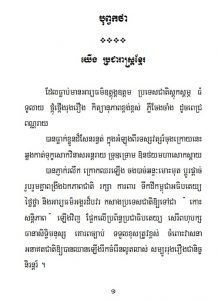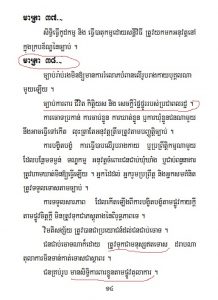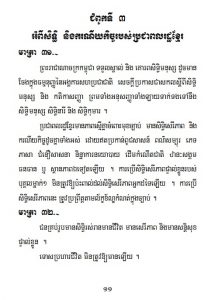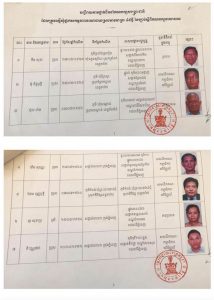Op-Ed: One Million Signatures for the 26th Anniversary of the Paris Peace Agreement
Hun Sen’s recent action to dissolve Cambodia National Rescue Party (CNRP) is a gross violation of Cambodia constitution and the will of the Cambodian people. This action is grossly against the spirit of Paris Peace Agreement. His move is to bolster his dictatorship. Beside of accelerating our petition to submit to the UNs during this December 10, 2017 of World Human Right Day, following are some tips to deal with a dictator.
A Checklist for identifying a dictator:
All dictators, past and present, follow a checklist of sorts to gain, and retain, power:
1. Frighten the population with talk of crime and social unrest, then present himself as the only person capable of protecting them.
2. Blame society’s ills on foreigners, immigrants and “others” who do not look, sound or act like himself and his core followers.
3. Control the mass media by disparaging any news outlet that is critical of his agenda.
4. Create distrust of the judicial system and any other governmental institution not under his direct control.
5. Indulge in character assassination against all individuals who oppose him.
6. Create his own narrative, with no regard to the truth, in order to obtain the adoration and unquestioning support of those sufficiently naive to believe him.
A checklist to respond to a dictator:
Domestically
1. Using our purchasing power to boycott all products supplied by the dictators’ family, patrons, and networks.
2. Avoiding to join any meeting or gathering by the dictator or his networks.
3. Increasing on non-complying, non-cooperative, and voting out of the dictator.
Internationally
1. Cutting all foreign aids
2. Imposing sanctions and economic embargoing
3. Cutting trade privileges and preferential duty free
4. Visa ban and asset/bank account freezing for all deposits of the dictator and his accomplice in those democratic countries
You are part of these check lists to teach a lesson to dictator of Cambodia. Please share more to drive our petition!

